
The Organization of American States is an international organization founded on 30 April 1948 to promote cooperation among its member states within the Americas.
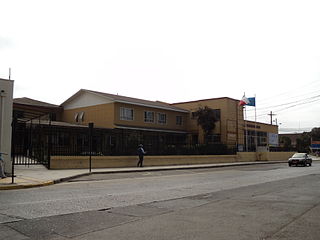
Quintero is a Chilean city and commune in Valparaíso Province, in the Valparaíso Region, 30 kilometers north of Valparaíso. The commune spans an area of 147.5 km2 (57 sq mi). It was the first port in the country, created during the expedition of Diego de Almagro. Fundición Ventanas and other heavy industries are located in the commune of Quintero.

Ricardo Luis Lorenzetti is an Argentine judge graduated from the National University of the Littoral, Argentina, with a long national and international career. He used to be Chief Justice of the Supreme Court of Argentina (2007-2018), proposed by President Néstor Kirchner and approved by the Senate, assuming his position on December 12, 2004, covering the vacancy caused by the resignation of Justice Adolfo Vázquez. On November 7, 2006, he was appointed Chief Justice, officiated as of January 1, 2007. Currently, he is one of the five Justices of the Supreme Court. He was President of the Commission for the preparation of the Parliamentary Act to reform, update and unify the Civil and Commercial Codes of the Argentine Nation, Presidential Decree 191/2011.
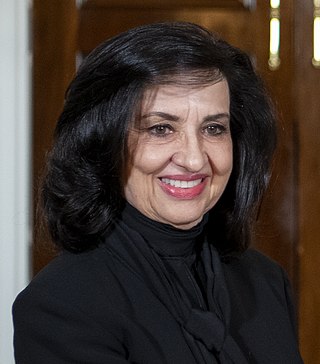
Claudia Blum Capurro is a Colombian psychologist and politician who served as foreign minister. A veteran Senator, she became the first woman to serve as President of the Senate of Colombia. She also served as the 26th Permanent Representative of Colombia to the United Nations.

Sara María Larraín Ruiz-Tagle is a Chilean politician and environmentalist who ran for president in 1999 presidential election. She is of Basque descent.
The water resources management system in Uruguay has been influenced by the general sense of water as an abundant resource in the country. Average annual rainfall is 1,182 mm, representing a contribution of 210 km3 annually throughout its territory. In 2002, the per capita renewable water resources was 41,065 cubic meters, way above the world average 8,467 m3 in 2006. Uruguay also shares one of the largest groundwater reserves in the world, the Guarani Aquifer, with Brazil, Argentina, Paraguay. The Guarani aquifer covers 1,200,000 square kilometers and has a storage capacity of 40,000 km3.

The Caribbean Initiative is the most recent initiative of the IUCN.
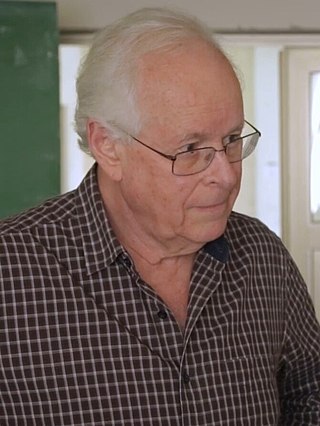
Enrique Leff is a Mexican economist, environmental sociologist and environmentalist. He has written 25 books and 180 articles on political ecology, environmental sociology, environmental economics, environmental epistemology and environmental education. He is regarded as one of the key environmental thinkers in Latin America.
The Uruguayan savanna ecoregion used to be covered by grasslands, palm savannas, and gallery forests along the Uruguay, Negro, Yaguarí, Queguay, and Tacuarembó rivers. Unfortunately, agriculture and cattle ranching have heavily altered these natural communities. The savannas are critically endangered because there are few small isolated patches of intact habitat remaining. The whole ecoregion has been severely altered by cattle ranching, one of the main pillars of the national economy in Uruguay. About 80% of Uruguayan territory is used for cattle ranching on natural and artificial savannas.
Sheila Raquel Abed de Zavala is a Paraguayan lawyer and politician.

Geovanny Vicente-Romero is a Dominican political strategist, lawyer, columnist, international consultant and university professor who teaches strategic communications at Columbia University as an associate lecturer. He specializes in public policy and public administration, and has several years of experience in the public sector, academics, and journalism. He writes a weekly column for CNN as a political analyst.

The Ministry of Science, Technology and Environment of the Republic of Cuba, also known as CITMA, is the Cuban government ministry which oversees state politics in matters of science, technology, environment and the usage of nuclear energy. Its headquarter is in a building of Calle Línea, a street of central Havana next to the Malecón, and part of Vedado, a ward of the municipal borough of Plaza de la Revolución.

Teresa Ribera Rodríguez is a Spanish jurist, university professor, and politician who has served as the Minister for the Ecological Transition of Spain since 2018, after Prime Minister Pedro Sánchez coming into power following the successful no-confidence motion against Mariano Rajoy. In 2020, she was appointed Fourth Deputy Prime Minister and in 2021 she was promoted to Third Deputy Prime Minister.
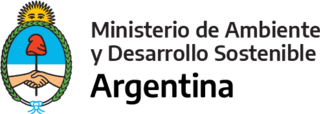
The Ministry of the Environment and Sustainable Development of Argentina was a ministry of the national executive power that oversaw the government's policy on environmental issues and promotes sustainable development.
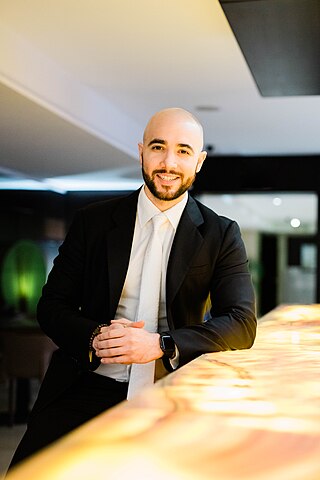
Edison Augusto Broce Urriola is a Panamanian independent politician, lawyer, and environmental advocate serving as a member of parliament in the National Assembly of Panama for the 2019-2024 legislative term.
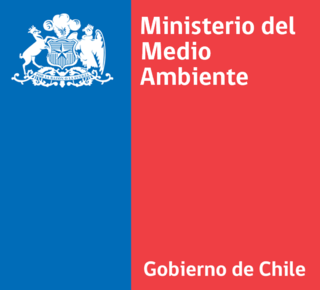
The Ministry for the Environment is a ministry of the State of Chile that is in charge of collaborating with the President of the Republic in the design and application of policies, plans and programs in environmental matters, as well as in the protection and conservation of biological diversity and of renewable and hydric natural resources, promoting sustainable development, the integrity of the environmental policy and its normative regulation.
Emilio Luis Sempris Ceballos is a Panamanian politician and sustainability advocate. He served as Panama's minister of environment from 2017 to 2019. He also served as director general of the Water Center for the Humid Tropics of Latin America and the Caribbean (CATHALAC) between 2002 and 2012. In 2021, he was appointed as Distinguished Advisor of the Integrity Council for the Voluntary Carbon Market (ICVCM).

Orlando Jorge Mera was a Dominican Republic politician, television host and producer, environmental manager, and lawyer, Minister of Environment and Natural Resources from 16 August 2020 until his assassination on 6 June 2022. He previously served as Director-General of the Dominican Institute of Telecommunications. He was a member of the Modern Revolutionary Party.
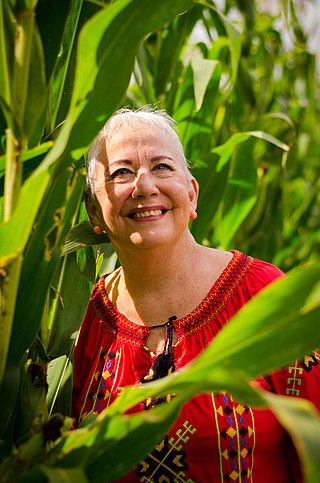
Enriqueta Medellín was a Mexican surgeon and environmentalist. Raised in Mexico City, from a young age she participated in projects to clean up the city and became interested in the links between disease and the environment. She earned a degree as a medical surgeon from the National Autonomous University of Mexico and specialized in human genetics. She also studied environmental education and management.















